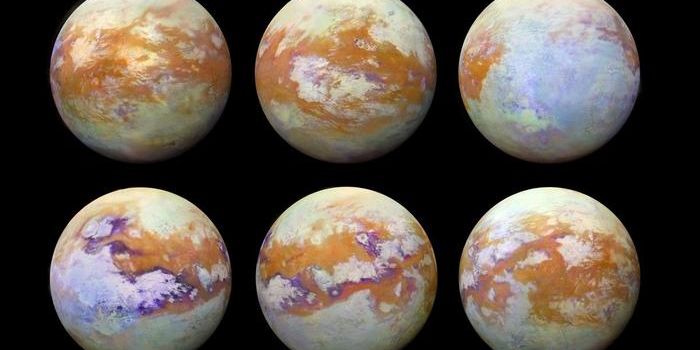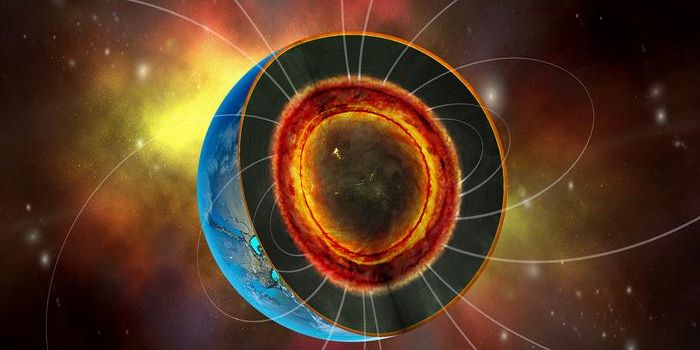Antarctic Microbes: Adapting to Changing Climate Conditions
A recent study published in ISME Journal examines how climate change affects microbial communities in the waters surrounding Antarctica, and specifically how seasonal variations in temperature and salinity (saltwater content) could have long-term consequences as climate change continues to worsen across the globe. Such regions have long been known to experience seasonal cycles of temperature and salinity due to the lack of sunlight in the winter and near-constant sunlight during the summer.
Image of microbes that cause the underside of the sea ice to become brown or green, often producing thick mats in the shielded area on the underside of the ice with some microbes giving off a distinctive seaweed-like smell. This study unveiled how these algae, the foundation of the food chain in these polar environments, adjust to seasonal variations in temperature and salinity (salt content). (Credit: Hannah Dawson/University of Washington)
However, this study marks the first time microbial communities are analyzed to see how these seasonal cycles are impacted, with a focus on how the changing environmental conditions due to climate change could impact these microbial communities, as well. The reason why these specific microbial communities are vital is due to their photosynthesis capabilities, which means they clean the atmosphere of carbon dioxide while replenishing it with fresh oxygen.
This study was led by the University of Washington (UW) and holds the potential to help scientists better understand the long-term effects of climate change on microbial communities on a global scale, especially with Antarctic sea ice experiencing all-time record low levels in 2023.
“We know very little about how sea-ice microbes respond to changes in salinity and temperature,” said Dr. Hannah Dawson, who is a UW postdoctoral researcher and conducted the research as an oceanography PhD student at UW and is lead author of the study. “And until now we knew almost nothing about the molecules they produce and use in chemical reactions to stay alive, which are important for supporting higher organisms in the ecosystem as well as for climate impacts, like carbon storage and cloud formation.”
For the study, the researchers collected and analyzed samples from both land and water in 2018 to see how the microbial communities reacted to variations in temperature and salinity, including 10-day incubations on the land samples. In addition to the in-situ analyses, samples were also sent back to Seattle to conduct more in-depth analyses and measurements, as well.
The findings indicated that microbes adjusted well to the varying environmental conditions, but that lower levels of salinity could result in decreased production of omega-3 fatty acids, which could be bad for the marine ecosystem that needs those nutrients. However, this finding is currently being confirmed by the team.
Left to right: UW Postdoctoral researcher, Dr. Hannah Dawson, and UW PhD student, Susan Rundell, seen gathering samples of seawater and sea ice off the coast of West Antarctica in November 2018. (Credit: Rebecca Trinh/Columbia University)
Image of the incubation experiments conducted for this study. (Credit: Hannah Dawson/University of Washington)
“We’re interested in how these sea-ice algae contend with changes in temperature, salinity and light under normal conditions,” said Dr. Dawson. “But then we also have climate change, which is completely remodeling the landscape in terms of when sea ice is forming, how much sea ice forms, how long it stays before it melts, as well as the quantity of freshwater input from glaciers. So, we're both trying to capture what's happening now, and also asking how that can inform what might happen in the future.”
What future discoveries will researchers make about the link between microbial communities and climate change in the coming years and decades? Only time will tell, and this is why we science!
As always, keep doing science & keep looking up!
Sources: ISME Journal, Axios, EurekAlert!











